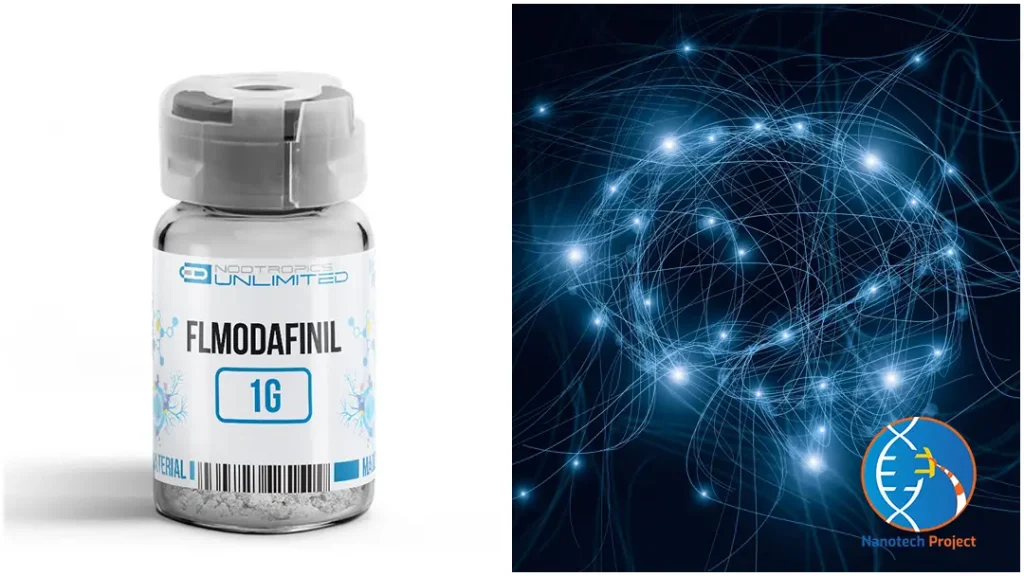Adipotide, alternatively known as FTPP or Fat-Targeted Proapoptotic Peptide, is a synthetic substance designed to aid in weight loss by specifically targeting fat cells. Currently under investigation as a potential treatment for obesity, Adipotide is available in a nasal spray form, providing a more effective means of administering this research chemical.
Think of it like a mimic of natural proteins it’s called a peptidomimetic. This substance works by attaching itself to a particular protein receptor called prohibitin. Sometimes, it’s also known as Prohibitin-targeting peptide 1 (Prohibitin-TP01).
What’s interesting about Adipotide is how it works on fat. It prompts a kind of cell death, known as apoptosis, but only in white fat cells. These are the cells that store fat in our bodies.
In studies on animals, Adipotide has shown some really impressive results. By causing fat cells to undergo apoptosis, it led to significant fat loss and weight reduction in these animals. Additionally, it seems to have positive effects on various things related to metabolism that could lead to a healthy body mass index.
However, it’s important to note that so far, Adipotide has only been tested on animals. While the outcomes seem promising, we still need a lot more research to understand if it’s safe and effective for humans. That’s why if you come across Adipotide nasal spray, it’s only meant for research purposes and not for personal use.

Product Information
Meet BehemothLabz’ Adipotide nasal spray. This chemical is the innovative peptide that’s been making waves in the realm of fat loss research. Based on intriguing animal research, this experimental peptide has shown promising potential in targeting and eliminating fat cells by disrupting their blood supply. Imagine the possibilities: reduced fat cells, potential weight loss, improved insulin sensitivity, and a better body mass index.
Originally crafted as a contender for cancer therapy by American researchers, Adipotide was initially aimed at shrinking blood vessels supplying fresh blood to cancer cells, triggering their programmed cell death. However, the plot thickens! Research findings hint at Adipotide’s potential ability for not just fighting cancer but also potentially promoting fat loss by trimming down the blood supply to those stubborn fat cells. It’s like a targeted strike against unwanted adipose tissue, that could alter how the human body handles fat.
Despite its potential, Adipotide is not recommended for human consumption. Buy this product for research purposes only.
How Does It Work?
Adipotide, also known as Prohibitin-TP01, is a special synthetic peptide created in labs to deal with obesity – the result of having too much body fat.
Although most of the research on Adipotide has been done on animals, peptides in general have shown some promise in reducing weight when tested in clinical studies. Peptides are different because they can trigger natural processes without causing the kinds of side effects that often come with regular synthetic drugs.
The way Adipotide works is pretty unique. Its design specifically targets and gets rid of different types of fat cells. It does this by reducing the blood supply to these fat cells, which means fewer fat cells are in the body.
Scientists and doctors have been focusing a lot on fat cells in recent years, seeing them as a major factor in fighting obesity. Adipotide aims at the proteins that support these fat cells, disrupting their comfortable space in the body.
The result of this focused action is that the unwanted fat gets burned up because the fat cells lose their support. Then these fat cells break down and are absorbed into the bloodstream, where they can be processed by the body.
One cool thing about Adipotide is that it targets only the blood vessels connected to fat cells, not those linked to important organs or tissues. This “choosy” feature suggests it could help fight obesity without messing with the body’s essential functions.
Adipotide looks promising as a research chemical for those interested in finding potential weight loss solutions. However, it’s crucial to remember that despite its exciting possibilities, extensive research and testing on humans are needed to make sure it’s safe, effective, and has no long-term risks when used to fight obesity.
Potential Benefits of Adipotide
Adipotide and Fat Loss
Adipotide is an experimental drug designed to target and reduce fat accumulation in the body. Its mechanism of action involves inducing apoptosis (programmed cell death) specifically in white adipose tissue, leading to a decrease in fat stores.
A notable study conducted on obese rhesus monkeys demonstrated the potential of Adipotide in reducing body fat. The research showed significant weight loss and reduced body fat over time in monkeys treated with Adipotide.
Adipotide and Weight Management
In studies on animals like overweight monkeys and mice, Adipotide showed some big effects on weight and fat loss. For example, in one study with obese monkeys, they lost around 10% of their body weight in just four weeks because of Adipotide. This happened mainly because the treatment reduced their white fat cells. These fat cells were specifically targeted and made to go through cell death, leading to weight loss in the monkeys.
Similarly, in studies with overweight mice, Adipotide also seemed to work well in reducing body weight and fat. The mice treated with Adipotide had less body fat compared to the ones that didn’t get the treatment. This peptide mostly seemed to focus on reducing the harmful fat around the organs in the belly, known as visceral fat, which can be risky when it builds up too much.
These animal studies strongly suggest that Adipotide might be good at targeting and reducing fat, leading to weight loss. But it’s important to remember that while these animal findings are exciting, there’s still a lot we don’t know about how it might work in humans.
Studies on people using Adipotide are pretty limited, and most of the research is still in the early stages. Because of safety worries and the challenge of moving from animal studies to human use, we need more thorough research to understand how safe and effective Adipotide might be for people looking to manage their weight.
You might be interested in our other articles.
Adipotide and Tumor Cells
Adipotide, has gotten a lot of attention for its potential in weight management, however, it has also shown some interesting connections to cancer cells. Now, this doesn’t mean it’s a cure or treatment for cancer, but there’s been research exploring its effects.
In a few studies, Adipotide’s action on fat cells seems to have had some impact on tumors. For instance, in one study on mice with prostate cancer, Adipotide was found to shrink the tumors. It’s thought that Adipotide’s ability to cut off the blood supply to fat cells might have indirectly affected the blood supply to tumors, slowing down their growth.
Similarly, in research on breast cancer in mice, Adipotide seemed to reduce the spread of cancer cells to other parts of the body. Targeting the blood vessels that feed fat cells might have affected cancer cells’ ability to travel and spread.
Now, it’s crucial to understand that these studies are still in their early stages and were conducted on animals, not humans. While the findings are intriguing, it’s far from being a confirmed treatment or cure for cancer. Plus, the effects of Adipotide on cancer cells seem to be indirect and related to its action on fat cells.
Side Effects

Adverse Reactions
Side effects associated with Adipotide use have been reported in animal studies. Some common side effects observed in these studies include metabolic alterations, kidney damage, and changes in blood parameters. However, the severity and frequency of these side effects in humans are not yet fully understood due to the limited scope of human trials.
Interactions with Other Medications
Concerning interactions with other medications, there isn’t comprehensive information available on how Adipotide might interact with existing medications in humans. As such, it’s crucial for individuals using Adipotide or considering its use to consult healthcare professionals regarding potential interactions with any current medications they are taking.
Effect on Pregnant and Lactating Women
For pregnant and lactating women, there’s a lack of data on the safety of Adipotide in these groups. Because of the uncertainties regarding its effects on fetal development and potential transmission through breast milk, the use of Adipotide is not recommended for pregnant or breastfeeding women.
Suggested Dose
Alright, let’s talk about the suggested doses for using Adipotide. Now, keep in mind, that these aren’t official recommendations from big scientific studies or doctors. Instead, these doses you might see online are based on reports from smaller studies and what other researchers share in forums.
- 100 to 150 pounds; from 455 to 680 micrograms; period of 28 days
- 151 to 200 pounds; from 685 to 905 micrograms; period of 28 days
- 201 to 250 pounds; from 910 to 1150 micrograms; period of 28 days
Is Adipotide Legal?
Typically, Adipotide is categorized as a research chemical, meant specifically for scientific studies and laboratory research purposes. It’s crucial to highlight that purchasing Adipotide or any similar research chemicals with the intent of human consumption is not recommended and is likely illegal.
In many places, Adipotide is not approved for use in humans due to its experimental nature and the lack of extensive studies confirming its safety and effectiveness in people. Therefore, acquiring Adipotide for personal use or human consumption can pose serious legal implications and health risks.
If someone is interested in Adipotide for research purposes, it’s important to obtain it through legal and authorized channels intended for scientific research and not for personal or human use. Adipotide should only be handled by qualified researchers or individuals with proper knowledge of laboratory procedures and safety protocols.
Where Can You Buy the Best Adipotide?
Behemothlabz has been one of the market’s hidden heroes since 2014, constantly releasing high-quality products that contribute to people’s overall health and happiness. They’ve been working with Adipotide for a long time, so they’re a safe bet. Are you still unsure? Customer testimonials can be found on the Behemothlabz website
This trustworthy online shop is the best place to buy anything. They have a round-the-clock chat service and cite research to back up their claims. If you haven’t tried them yet, do so immediately. Obtain the top-tier Adipotide nasal spray immediately!
Conclusion
In conclusion, the development of Adipotide as a nasal spray presents a promising avenue in the quest to address obesity. As a peptidomimetic, its specific targeting of white fat cells has demonstrated encouraging results in various studies, showcasing its potential as a tool for weight management.
Studies involving obese monkeys and lean rhesus monkeys using Adipotide nasal spray have displayed reduced food intake and improved insulin sensitivity. Additionally, clinical trials involving obese patients revealed mild weight loss, indicating its potential effectiveness as an anti-obesity treatment.
The unique action of Adipotide, targeting and inducing apoptosis in white fat cells, leads to decreased food intake and potentially rapid improvements in insulin resistance. While further comprehensive research is necessary to fully understand its efficacy and safety in humans, the preliminary findings suggest that Adipotide nasal spray could be a promising option in the treatment of obesity and related metabolic conditions.












